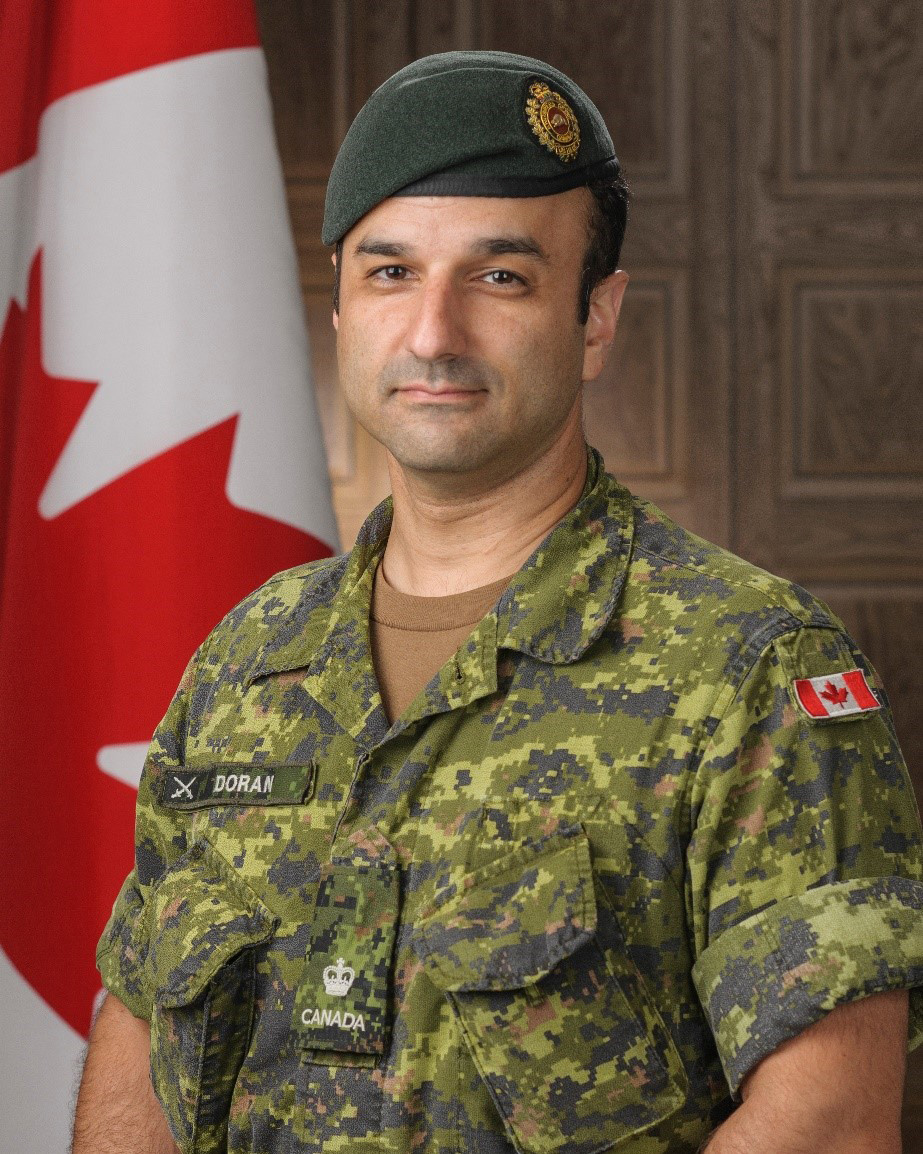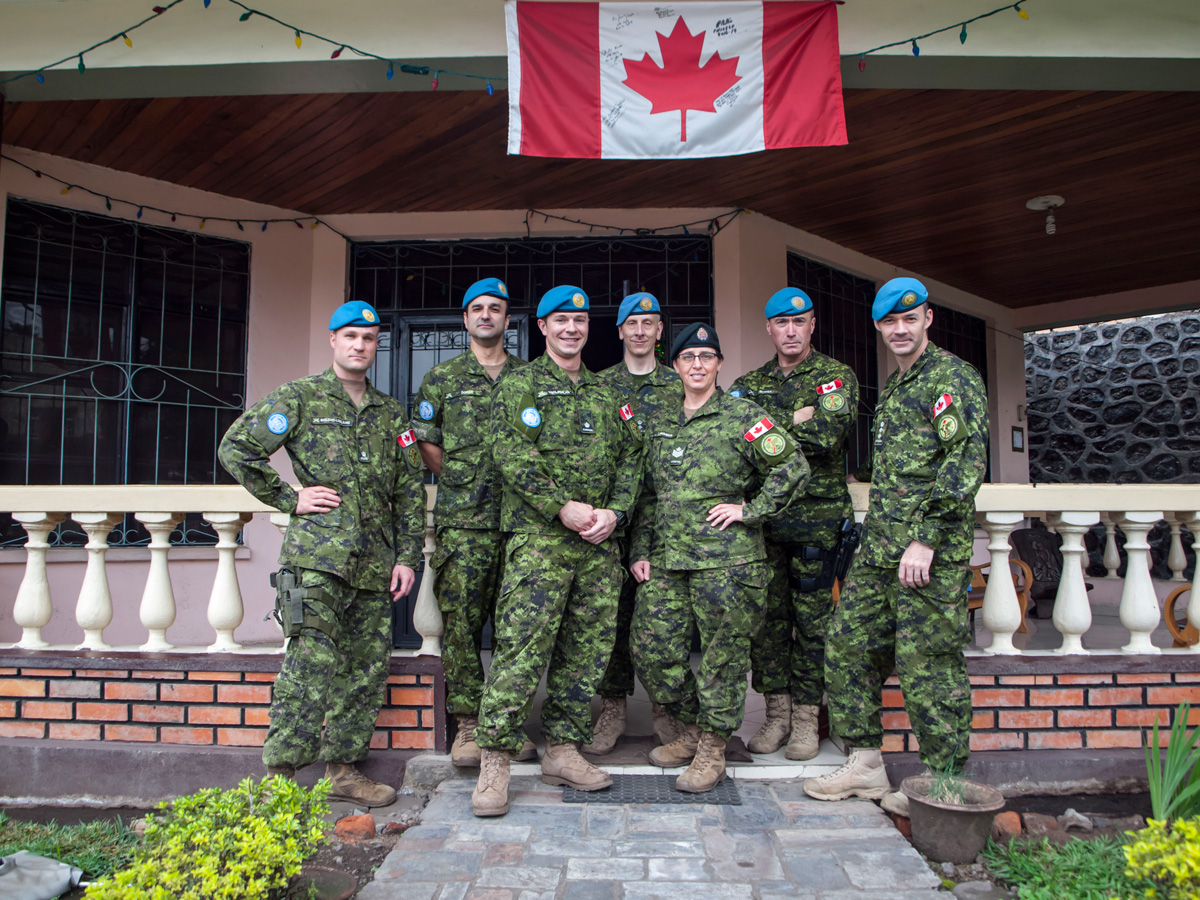Daniel Doran has seen conflict in its many forms. He’s been in the terrifying middle of it, and studied it from a distance. A long-time officer in the Canadian Armed Forces, Doran has served on the NATO mission in Afghanistan as well as UN missions in both Sudan and the Democratic Republic of the Congo. In 2010, he transferred from the Regular Force to the Army Reserves, where he serves part-time as a Deputy Commanding Officer of 34 Combat Engineer Regiment.

Doran’s most recent mission was a six-month deployment to the Democratic Republic of Congo (DRC) from September 17, 2017, to March 18, 2018. Doran was part of the UN’s operation to help stabilize the DRC and protect civilians as warlords and rebel militias fight for control of mineral-rich lands; and the country lurches violently toward a December Presidential election.
Early into his DRC assignment, Doran was mandated to develop a mission command plan for military support for the upcoming election, a project he calls “part graduate-level thesis and part mission-level plan.”
Blueprint for military support
Doran, who is Associate Director, Administrative Excellence Centre at McGill, supported the Force Commander and Deputy Chief of Staff (Operations and Plans) in developing a preliminary blueprint for the military support for the December election. With only 17,000 UN troops in the DRC, a country the size of Western Europe where violent protests against the government regularly end with civilian fatalities, the plan had to be deliberately thought-out.
In order to identify potential flash points and hotspots, Doran had to do research. Lots of research. “It was not just a question of learning more about the politics and history of the DRC, but also the broader picture of sub-Saharan Africa,” says Doran. “How do elections work in East Africa? I had to look at Kenya, Tanzania, Zimbabwe, Malawi and other countries in that area that had similar types of strongman presidents who had been ousted or had had problematic elections
“After analyzing those different dynamics, I had to template them so we could get an idea of what to expect in the DRC.”
Mixed emotions at tour’s end
As his six-month tour drew to a close, Doran felt a mix of emotions. “Obviously I missed my wife and my kids, and my friends and family. It’s a whole chunk of your life that you kind of pack up and leave behind, so you’re definitely looking forward to getting home,” he says. “But at the same time, I had been so focused on the task at hand that, come hell or high water, I was going to finish it before I left. I needed that sense of closure.”
Task completed, Doran returned home to his family – and his job at McGill. “It’s amazing how much had changed at Project Management in just six months,” he says. “New faces, new processes – I had to relearn a whole lot of stuff.”
The many faces of war
If Doran has learned anything over his three tours, it’s how much he still needs to learn. “My personal interest has always been in peacekeeping and peacebuilding. I did my first Masters in human security and peacebuilding,” he says. “In Afghanistan I saw what a war looks like. In the Sudan, I saw what it looks like after a war. In the DRC, I felt like I saw what it looks like before a potential war. All that time, I came back to the same questions: How do we address root causes of conflict? How do you manage violence in a way to achieve peace?
“I’m afraid I don’t have the answers.”
Doran says that his tour in the DRC will likely be his last. Instead, he wants to spend more time with his family and focus on his job at McGill. Still, he admits, he misses his military family. When asked what was his greatest reward while in the military, Doran doesn’t hesitate. “The privilege of Command for sure. Leading Canadian soldiers is the single greatest privilege that can be bestowed onto any Canadian citizen. Nothing can top that.”
In fact, Doran wishes that Canadian citizens had a better understanding of the country’s military – especially of the diverse collection of men and women who wear the uniform. “Many Canadians I have met assume that Canadian Forces members all fit into a single stereotypical mould, whether it be socially, politically or philosophically,” says Doran. “Nothing could be further from the truth. The military is a cross section of Canadian society and every colour of the rainbow exists within its ranks. When we all are in uniform, it is easy to assume that there is a homogeneity to the group that extends beyond the visual – this is not the case. People need to talk more with veterans to figure this out for themselves.”

